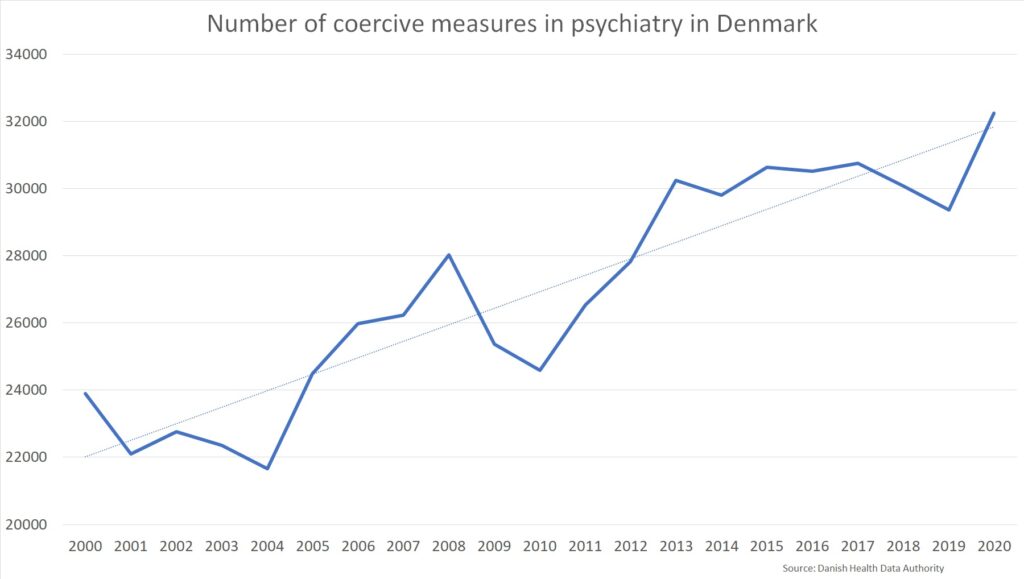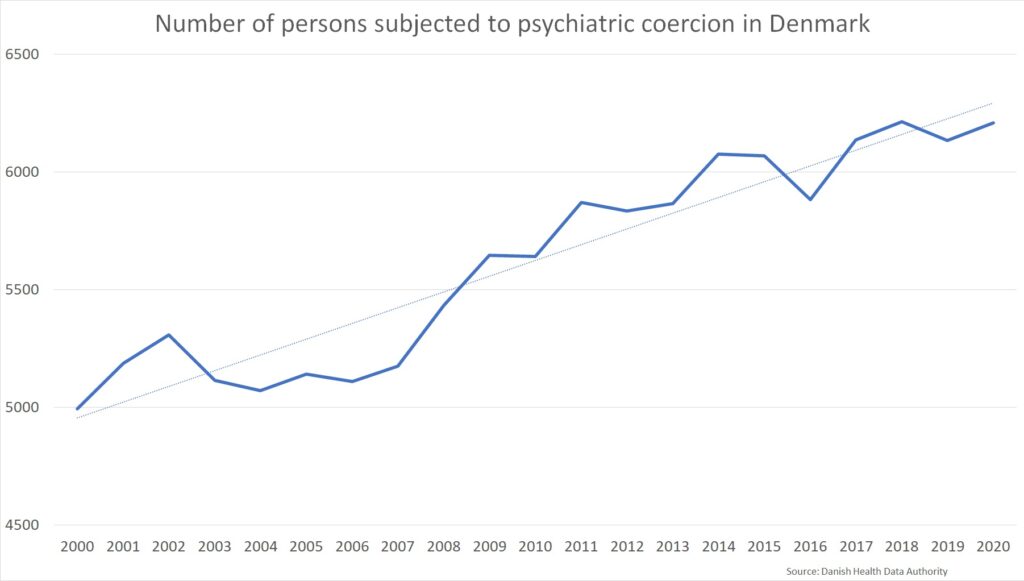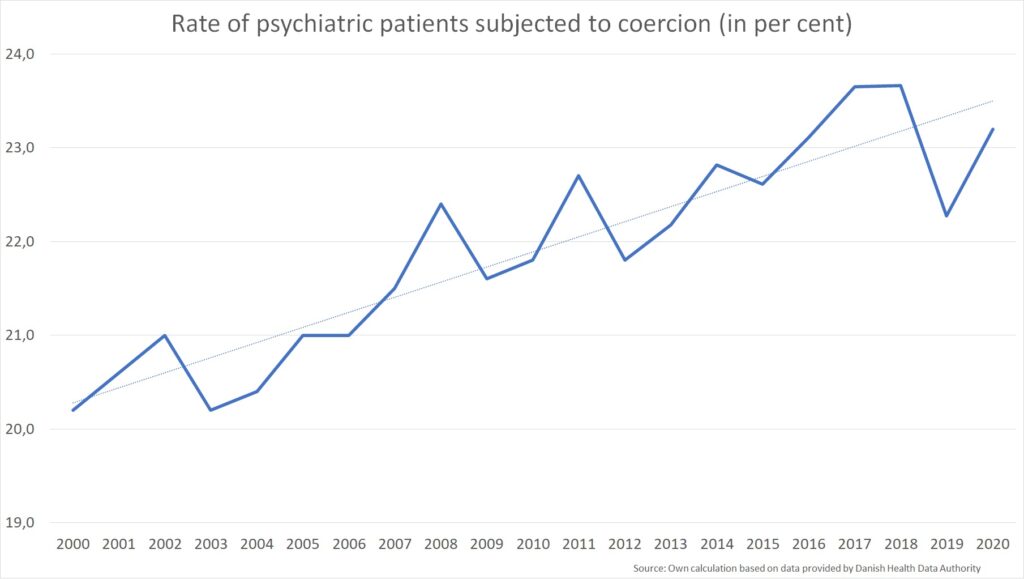Denial of being listened to including in very personal matters, subjected to the use of force against oneself, coercion, deprivation of liberty, and bodily and mental harm or abuse are subjects one does not readily experience. After all, it just does not happen except for the very rare instance of assault, kidnapping, and such criminal events. And they are rare, so rare that most people never met anyone who experienced any such events.
Apart from the criminal assault and such, does it happen? Surprisingly it does, in the specialized field within the health sector: Psychiatry. Yes, one may think, but that is only happening to the real crazy and violent psychotics. Not the case, in fact. An investigation carried out by The European Times show it is widespread and increasing and even in well-resourced countries.
High-quality nationwide statistics
We are focusing on Denmark, as one of the very well-organized Nordic welfare societies, with a long tradition of promoting human rights and more resources than many countries can dream of. If it happens in such a society it can happen anywhere.
Another reason to focus on Denmark is that the country has a large network of population-based medical databases. With its universal tax-funded health care system with residency-based entitlement, and availability of government-maintained nationwide registries, that is providing longitudinal sources of routinely collected administrative, health, and clinical quality data it is possible to produce a broad range of high-quality statistics. And adding to this, is the fact that a unique personal identifier is assigned to every Danish resident, which is enabling exact individual-level linkage of all records and lifelong follow-up.
The European Times has obtained extensive statistical data from the Danish Health Data Authority, a part of the Danish Ministry of Health, that provide coherent health data and digital solutions that aim at benefiting patients and practitioners as well as research and the administration.
The data of the Danish Health Data Authority show that the number of unique persons that are being hospitalized in a psychiatric ward or hospital in Denmark has been stable over the last 20 years, with a range of about 27.000 persons by 2020. The country has 5,8 million citizens. The number of hospitalized persons while fluctuating over the years has slightly increased in the same period following the population growth trend. The number of persons getting hospitalized in to psychiatry in other words is comparative year by year for the country as a whole, and can be considered more or less the same since year 2000.
Increasing use of coercive measures in psychiatry
In viewing the psychiatric systems interaction with those persons it services, that is, those persons with psychosocial disabilities who are being consulted and treated for mental health conditions a clear picture of increasing use of coercive measures appear.

The number of coercive measures (individual and complete series of interventions) in psychiatry in Denmark has been sharply increasing for the last decades.

The number of persons subjected to the use of coercive measures in psychiatry has similarly been increasing far beyond the population growth trend.
The quality of the nationwide health data registers of Denmark, make it possible to track every individual person and every contact to the health services, no matter where in the country live or take contact to the psychiatric system or is forced in to it. And every instance of use of coercive measures are registered by type for more than 25 years, some for 50 years. The registration is standard routine in every ward and hospital and centrally registered.
With this in mind there can be no question that the above statistics reflect a true representation of the total use of coercion in psychiatry in the country.
The European Times then looked in to the development of the use of coercion per patient. It was established that coercive measures are used more often for the average patient, but also that more and more patients are being subjected to the use of coercion today compared to 5, 10 or 20 years ago.

The rate of the psychiatric patients subjected to use of coercion is increasing as also noted from the increasing total number of persons subjected to this.
The use of coercive measures in psychiatry in Denmark is widespread and increasing.








